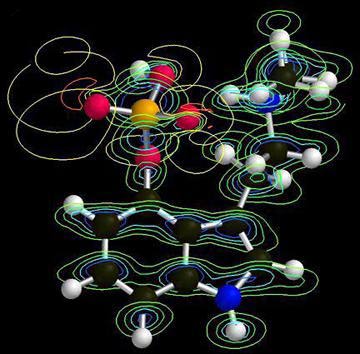Mystical mushrooms
 The journal Psychopharmacology reports on a fascinating study claiming that psilocybin-induced trips are indistinguishable from “true” mystical experiences and have long-lasting, positive effects. Leading the study was Johns Hopkins’ Dr. Roland Griffiths.
The journal Psychopharmacology reports on a fascinating study claiming that psilocybin-induced trips are indistinguishable from “true” mystical experiences and have long-lasting, positive effects. Leading the study was Johns Hopkins’ Dr. Roland Griffiths.
60% of the 36 educated, adult participants in the study had so-called complete mystical experience, based on tests such as the Pahnke-Richards Mystical Experience Questionnaire, which measures feelings of internal and external unity, transcendance, ineffability, sense of sacredness, noetic quality, and mood of joy/peace/love.
One third of the participants reported the experience was the most meaningful of their life, with an additional 50% placing it among the top five such experiences.
An intriguing aspect of the study was that friends and family of the subject were also interviewed, several months after the experiment, reporting sustained positive changes in attitudes and behavior.
The study was random and double-blind, but of course any study like this will have built-in assumptions. In this case the subjects were regular participants in religious or spiritual activities, which might have made them more prone to ascribe religious significance of personal meaning to the experience. They were also first-time users of hallucinogens.
In an editorial accompanying the article, Harriet de Wit notes (my paraphrase):
It may be time now to recognize these extraordinary subjective experiences. The Griffiths study is unique in applying rigorous, modern methods of psychopharmacological research and in studying the lasting, life-changing effects that have been attributed to such experiences. It will likely take an important place in the history of human psychopharmacology research. We would do well to be prepared to consider the entire scope of human experience and behavior as legitimate targets for systematic and ethical scientific
investigation.
So, is this “God in a pill”? In interviews, Griffiths said answering questions of religion or spirituality “far exceeds the scope of studies like these. We know that there were brain changes that corresponded to a primary mystical experience,” he said. “But that finding—as precise as it may get—will in no way inform us about the metaphysical question of the existence of a higher power.” He likened scientific attempts to seek God in the human brain to experiments where scientists watch the neurological activity of people eating ice cream. “You could define exactly what brain areas lit up and how they interplay, but that shouldn’t be used as an argument that chocolate ice cream does or doesn’t exist,” Griffiths said.
Anticipating a common objection, the researcher noted “My guess is that there will be people saying ‘You’re looking for a spiritual shortcut’”. He stressed that the drug is no replacement for the mental health benefits of continuous personal reflection: “There’s all the difference in the world between a spiritual experience and a spiritual life.”
See Google News for other reports.
In a future post I’ll ruminate on whether psychoactive drugs can be an element of spiritual development.

September 27th, 2007 at 00:58
I could not find this site in the Search Engines index